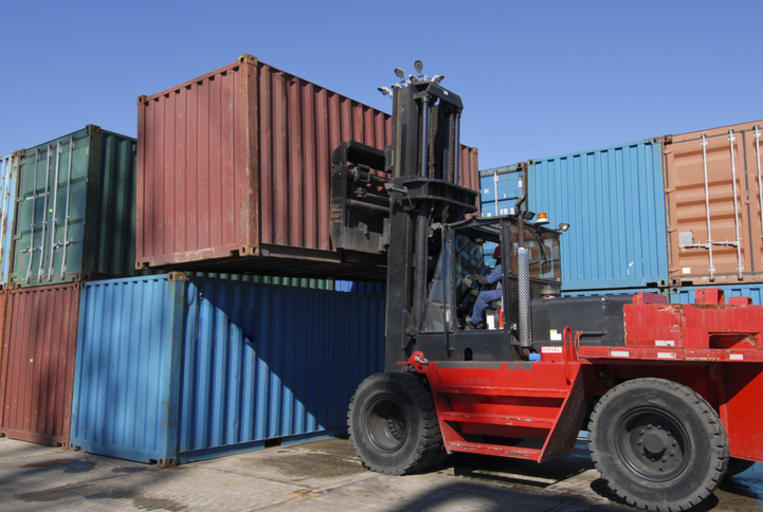
BBB Scam Alert: In the market for a shipping container? Watch out for this con

(Getty Images)
If you are looking to purchase a shipping container, watch out for the so-called “Sea Can Scam.” This crafty con uses real business addresses to trick people into paying for a shipping container that doesn’t exist.
How the scam works
You see an ad online for shipping containers at a very competitive price. You contact the business and are directed to a professional-looking website. You even do background research by searching for their physical address online. An online map shows their address is in a shipping yard. Everything checks out!
After some discussion with a customer service representative, you agree to purchase it. You are told you must pay upfront before you can arrange to pick it up.
However, after paying, the customer service reps become difficult or impossible to contact. If you visit the business in person, you find there is indeed a company at that address. Unfortunately, they are a different business with no knowledge of your purchase or the website you visited. Scammers use the addresses of legitimate businesses as a cover for their scams. They steal your money and personal information while damaging a real business’s reputation.
One person reported to BBB Scam Tracker, "40 foot storage container advertised on facebook to be delivered December 18. No delivery of container after purchase was made."
Another person reported, "I searched online for a Container to use for storage. I found one via the Facebook Marketplace site. The container was listed for sale via Coosa Container LLC. I inquired about sizes and cost per container size. I decided on a size and got a quote for the container. It was cheaper than some of the other containers I had found elsewhere. I asked if they could provide a military discount. I was told yes they would discount the container by $100.00. I was sent an invoice for the order and told I would receive the container within 7 to 14 days. I then made the payment online and waited for details on the delivery date and time. I called, emailed and messengered via FB Messenger and requested an update after the 14 days expired. I also called to get an update and spoke to an individual who informed me that he would call me back as he was in a meeting. He informed me that there was a delay due to the Port workers being on strike and the recent storm activity in the east. After not getting a call back I went to the website and requested a refund because I had not received any further details and also didnt receive the container yet. I was told I would be issued a full refund and waited again for the 5 to 7 business days for the refund to process and credit my account. The refund never happened and I went to my bank to file a complaint regarding the scam and theft of funds. I am currently waiting for a decision from my bank if I will be granted the funds due to scam or fraud."
How to avoid shipping container scams
- Double-check the business’s contact information. Before contacting a business, review its website and contact information carefully. Physical addresses are usually a good indication that the business is for real, but make sure the website matches the information you can find on local maps. For example, if a business’s contact phone number on their website is different from what appears for that address on Google Maps, consider it a warning sign. Another red flag is a physical address that comes up as an empty lot or a residential home when searched.
- Read reviews. Be sure to read reviews, and not just those that appear on the business’ website. Search for reviews on third-party websites and keep a close eye out for any reports of scams or less-than-honest business practices.
- Be skeptical of extremely low prices. If a price sounds too good to be true, it probably is.
- View the item before you purchase. See high-dollar items in person before you spend your money. If a seller won’t let you see their product or insists you pay first, you’re probably dealing with a scammer.
- Be wary of aggressive sales tactics. Scammers often apply serious sales pressure to get you to make a purchase without thinking your decision through. Don’t give into these tactics, especially when purchasing an item that costs several thousand dollars.
For more information
Avoid getting scammed by reviewing the BBB Tip: Smart Online Shopping. If you see a scam, report it to BBB Scam Tracker, even if you didn’t fall victim or lose any money. Your report can help others avoid common scam tactics.
Stay up to date on the latest scams by subscribing to BBB’s weekly Scam Alerts email. Learn how to recognize a scam at BBB.org/SpotaScam.
Still Need Assistance?
Contact Your Local BBB
Your local Better Business Bureau can assist you with finding businesses you can trust. Start With Trust®.
Additional Resources
Let BBB help you resolve problems with a business
Research and report on scams and fraud using BBB Scam Tracker
Learn more about the value of BBB Accreditation